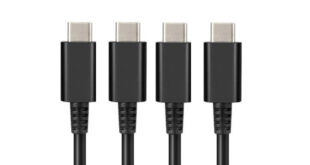Android is huge as a platform, with 550,000 new devices being activated every day. Games developers are still wary though, with concerns over whether they’ll be able to make money from paid games on the Android Market. So is freemium the answer? A panel at today’s Evolve conference in Brighton explored the issues.
Olivier Bernard, general manager, international at Glu Mobile, said that there are issues of quality affecting gamers’ willingness to pay for Android games. "On Android there is a lot of applications that are not up to iOS quality," he said. "You’re not going to make any money on Android if your application is not a very good one." He went on to suggest that Android users "want free content – that’s what we’re seeing in our statistics."
Tag Games’ Paul Farley said that billing and discoverability of content are still issues on Android Market. "For us as developers, we look at the opportunity cost as well," he said.
"On Android it’s not just the devices that are fragmented, you’ve also got fragmentation of firmware. Android users are not being encouraged to update their firmware quickly. And you’ve then got fragmentation of the stores as well. If I’m looking at launching a new IP, the cost of launching it on Android is much greater than iOS, which is why we lead with iOS."
Tony Pearce, CEO of TeePee Games and formerly boss of Player X. He reminded the audience of developers of the J2ME and BREW days, when the standard price for a mobile game was £5. "I remember saying ‘We’re in a £4.99 market. Don’t fuck it up!’ How wrong could I be? Seven years down the line only now are we seeing how important freemium games are."
He pointed out that the majority of the top 10 grossing games on iPhone’s App Store are freemium titles. "Right now, if you’re a publisher of mobile games, you have to start thinking about freemium products," he said.
How can developers help their Android games to be discovered, though? Paul Bowen, director of European sales at Tapjoy said his advice would be to make it free, and ensure it’s in the three most popular Android app stores: Android Market, GetJar and Amazon Appstore. And he said developers should start looking at pay-per-install models to make money from their games – Tapjoy is one of the companies offering this service.
Glu’s Bernard talked about the benefits of having an existing network of players from previous games, and suggested this is one reason developers would sign a deal with a publisher like Glu, despite the ability to self-publish on Android Market and other app stores.
Glu has switched focus from paid titles to freemium during the last year and a half. "The freemium model is difficult to master. The billing side is a key problem," he said. "Not on iOS, as we know, but on Android Google is getting a lot better, so we have big hopes for that, especially with their new SDKs for subscription coming in."
However, Bernard said that there is still work to be done to use operator billing within freemium games on Android. "We would like to attract as many customers as possible, and for that we see operator billing being important in the future… The operators have yet to grasp the opportunity."
The panel also discussed the issue of piracy in the Android space – famously high, but possibly something that might be undercut by freemium business models.
"On iPhone, piracy is huge. On Android it’s worse," said Farley. "By making your game free and server-based it makes it harder to pirate in that way… It doesn’t take it away entirely, but it enables piracy to almost become a distribution platform, and then it’s up to you to make sure you have great content that you can monetise effectively."
The panel agreed that there is still a role for publishers on Android Market, but Pearce pointed out that the business models have changed, with small developers having a genuine chance at competing with big publishers, on individual titles at least. "I question the role of the publisher, in terms of delivering value [to a developer] and taking a revenue share from that."
However, Pearce said that publishers may deliver value in their knowledge of what makes a good game – even down to small details like changing the name or running a beta test. "It can help you make the game better: that’s what a publisher can do," he said.
The panel were asked about the Amazon Appstore, which has had mixed feedback from developers since its launch for Amazon’s control of pricing. "For the moment we’re staying clear," said Farley.
Pearce was more outspoken. "How could anyoen sign a contract with a platform where they control your pricing? And they don’t tell you! That to me is a bizarre way of working. It’a a risk for any developer: letting them have the permission to change your retail price without telling you is quite remarkable, actually."

 MCV/DEVELOP News, events, research and jobs from the games industry
MCV/DEVELOP News, events, research and jobs from the games industry



